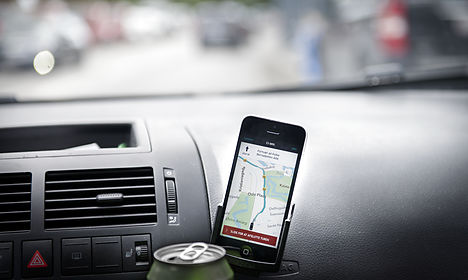UBER
Ruling could spell doom for Uber in Denmark
In a long-awaited ruling, the Copenhagen City Court on Friday found six Uber drivers guilty of violating Denmark’s taxi laws.
Published: 8 July 2016 13:58 CEST

The trade union LO said the ruling should drive Uber out of Denmark. Photo: Simon Skipper/Scanpix
The six drivers were handed fines ranging from 2,000 to 6,000 kroner.
The ruling marked the first time that a Danish court has weighed in on the legality of the popular ride-sharing service.
Uber was introduced in Denmark in November 2014 and was reported to the police by the Danish Transit Authority within hours of its launch. The Copenhagen Police confirmed in May 2015 that preliminary charges had been filed against the American company, but to the taxi drivers’ dismay the case took over a year to make it to court.
The local taxi industry has railed against what it says is Uber’s illegal operation in Denmark. The taxi drivers argue that the rideshare service Uber Pop creates unfair competition because Uber’s drivers and vehicles aren’t required to live up to the same requirements as others in the taxi business, one of the most thoroughly-regulated industries in Denmark.
The Copenhagen City Court ruled on Friday that Uber’s profit motive means it is not a true ridesharing programme but instead is akin to an illegal taxi service.
It is now expected that Friday’s ruling will clear the way for cases to proceed against an additional 40 Uber drivers who have been charged with violating taxi laws.
Dansk Taxi Råd, a business lobby group for the taxi industry, cheered the court’s decision.
“Copenhagen City Court has ruled that these six Uber partners have provided taxi services. That has been our interpretation all along and we are pleased that the City Court has confirmed that we are correct,” the head of Dansk Taxi Råd, Trine Wollenberg, told news agency Ritzau.
She added that she hopes police will crack down on Uber drivers now that the court has set a legal precedent.
The head of the Confederation of Danish Trade Unions (LO), said the court’s ruling should force Uber out of Denmark.
“I now expect Uber to stop offering pirate taxis in Denmark. We need to stop the illegal and unfair competition that Uber has created,” Lizette Risgaard said in a press release.
According to Uber, there are roughly 200,000 registered users in Denmark and 1,000 active Danish drivers each week.
Url copied to clipboard!


 Please whitelist us to continue reading.
Please whitelist us to continue reading.
Member comments